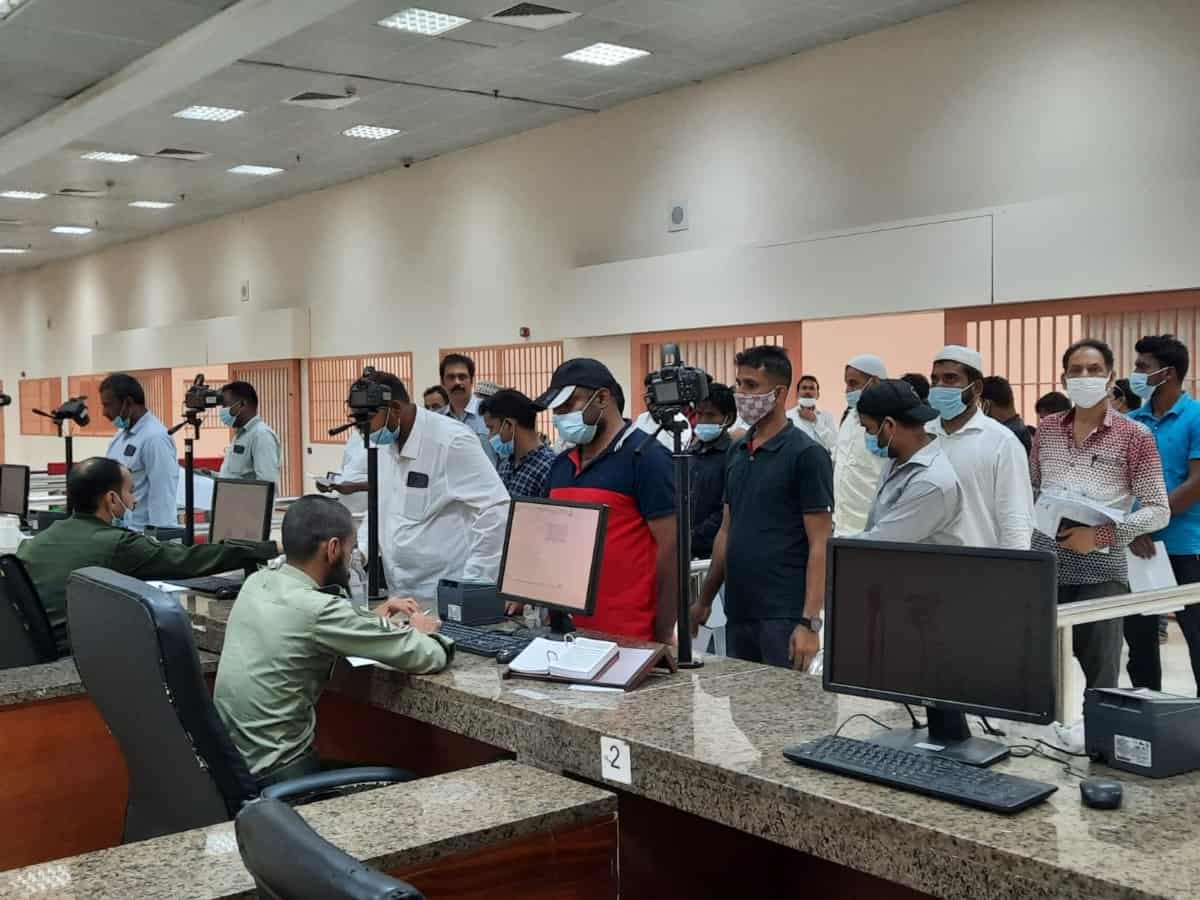
By Irfan Mohammed
Jeddah: Huroob, the word sends a bone-chilling message to many Indian and other foreign workers who lack stability in their jobs. In fact, it ruins the dreams of scores of youth who come to work in the oil-rich kingdom.
Once an expatriate employee is notified as Huroob it blocks his or her departure from the kingdom and has to face severe hurdles until he or she obtains exit from the country and has to wait patiently for a year and more for their turn to return home.
The battery of young Indian diplomats led by consul general Mohammed Shahid Alam successfully addressed the contentious issue of Huroob as they secured exit clearances for as many as stranded Indians in recent times. The young diplomats have been working tirelessly with local officials to expedite the backlog yielding positive results.
“Less than a week, we repatriated 97 Indians back home”, said Mohammed Shahid Alam, Indian consul general in Jeddah.
He said that the Indian Consulate receives a significant number of requests from Indian nationals during open house sessions and also through other channels regarding Huroob cases.
The Saudi Passport office that looks after the repatriation process is located far away from the city at Shumaisi and commuting over there is difficult for applicants the Indian consulate has made elaborate arrangements to take them in a special bus up to record their biometrics and obtain exit forms, he added.
The Consul General hailed Saudi officials’ support in granting exit visas for Huroob cases.
Huroob is meant to abstain from work and escape from the employer, which is a violation of local residency and work laws. It is an easy tool for employers to notify any of their employees as Huroob and the concerned employee is not aware that he or she was declared as Huroob.
There was a widespread allegation that in many cases employers are falsely notifying Huroob to get rid of them. Also, shun their official obligation as sponsors of the visa.
Many Indians not being able to see their loved ones back home in moments of joy or sorrow are unable to travel due to the Huroob tag in addition to financial constraints after losing their job.
Sidheeq Puthan Veettil had to wait for nearly two years before he could return home. A 47-years old Kerala native was devastated when all doors remained closed for him and Sidheeq once lived a decent life had to struggle to meet daily needs after losing his job. Sidheeq’s case exemplifies the ordeal that Huroob-tagged Indians are undergoing.
He told this correspondent that “still I can’t believe that I obtained an exit and can fly to India”. He added that it was not possible to return home without the support of the Indian consulate.
Sidheeq was one among hundreds of stranded Indians without their fault. Every day scores of blue-collar workers are struggling to clear their names from Huroob status to return home and dealing with Huroob cases is becoming a challenge and complex issue for many manpower sending Asian diplomatic missions where India is at the forefront.
